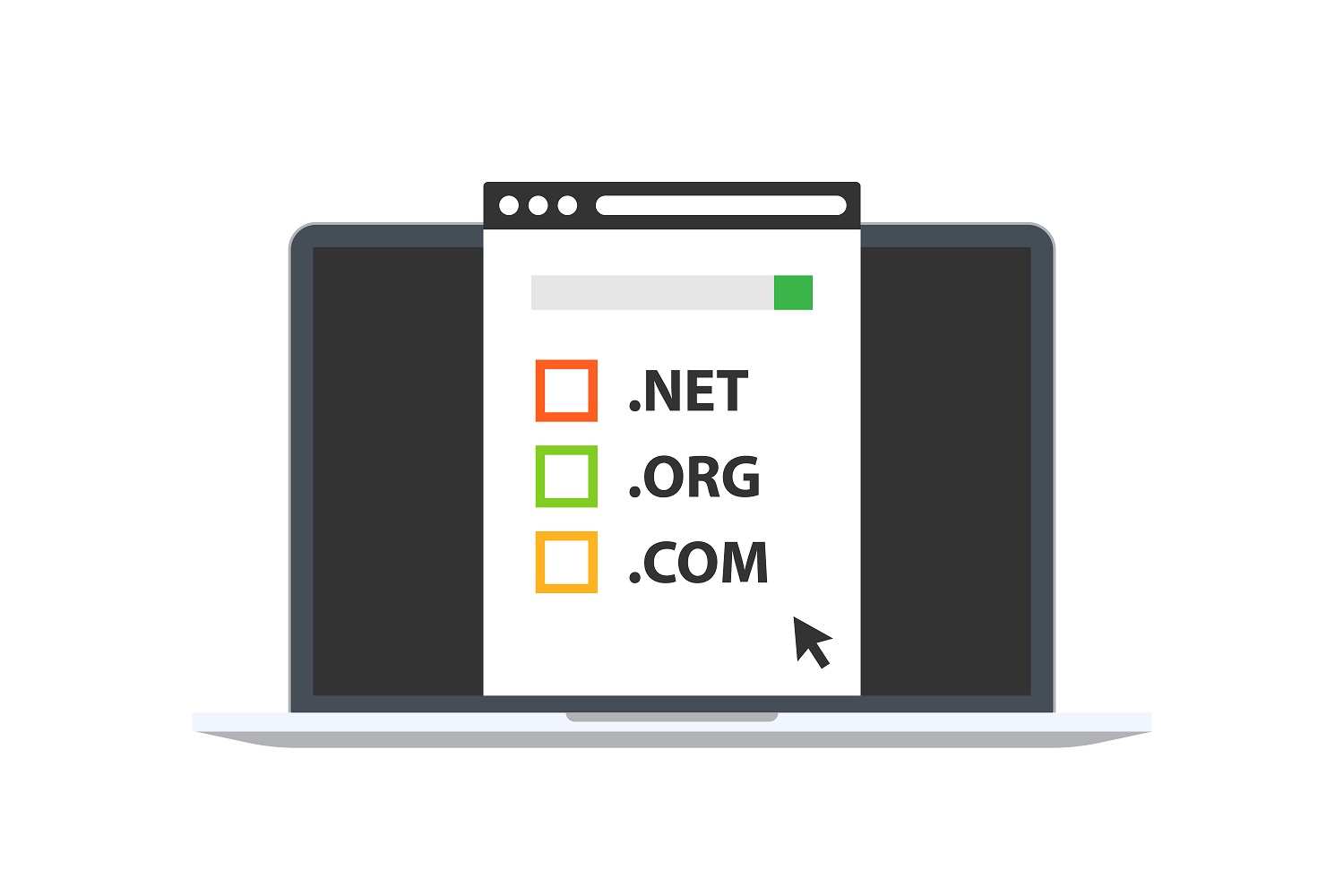
June 28, 2021, 0 Comments
How Do I Choose Between a .COM, .ORG OR .NET Domain Name?
The World Wide Web is home to Billions of websites each with a different name and a different purpose. What makes some stand out and some ignored is the website name and extension.
Taking an example, the website www.wikipedia.org has 3 parts:
- www
- Wikipedia
- .org
The “www.” part stands for World Wide Web as the site is on the internet, Wikipedia in this case is the domain name which is the name of the webpage and it shows what it’s all about. Finally, .org is the domain extension. About what domain extensions do and what are their types? Let’s find it out.
What is a domain extension?
We know that the last part of a web address that comes after the last dot is the domain extension but what’s the purpose of an extension? Basically, it represents the type, aim, and geographical region of a company, organization, business, etc.
Below we present 3 such extensions and their purpose. They can be paired with an extension like .uk (United Kingdom) or .pk (Pakistan) to show the country.
What are .com, .org and .net domain extensions?
For a company or business, people usually use the .com extension. For a non-profit organization like Wikipedia, a .org extension is used, and by companies that provide services like databases, Webhosting, collaboration tools a .net extension can be used.
When to use a .com domain extension?
.com is the most commonly used extension on the internet. It’s the most famous, most trusted, and the most preferred. The .com extension stands for “company” and was initially intended for commercial purposes. Nowadays the .com extension is being used by so many different types of sites. The diversity that it offers is raising its demands really high.

More than 50% of websites use a .com extension (according to statistics) which certainly brings it to the top of the game.
· SEO
When you type in a site name, the extension that most commonly comes to mind is the .com extension. Many people intuitively attach a .com extension while searching for something meaning that .com is what the customer is going for.
This is why Google ranks a site with a .com extension higher because people trust sites more with this extension. Customer preference is what affects Google’s ranking. So while you choose your domain name try to see if .com is available otherwise if a site with a similar name having a .com extension exists then you can lose clients which end up at the competitor’s website.
· Mobile-friendliness
As 90% of the world’s web traffic comes from mobile phones (according to statistica) keeping your site suitable for mobile users becomes vital. In most mobile phones the keypad has a button for extensions which has .com as the default extension.
That means it’s easier to reach a site with a .com extension instead of any other option which makes the search inconvenient. Thus to keep mobile users comfortable a .com extension becomes the winner.
When to use a .org domain extension?
.org stands for organization. If your organization is a non-profit or you couldn’t find a .com extension due to unavailability then .org is a good choice. Even though any organization or company can use this extension, people usually associate a .org extension with a non-profit. That means that if you work for profit your site can appear misleading and that’s very damaging!!!!
While people’s perception does play a role, you can use marketing strategies to make sure your message is clear and that the confusion doesn’t affect your business. If you want a stronger alternative to .com for your business then you should consider .net as the misconception is actually very widespread.
A benefit of the .org extension is that like .com it’s well established and trusted by customers.
Established in 1985, it’s old and used by many well-reputed organizations. Thus if you are looking for an alternative to the .com extension then .org is not a horrible idea. If you run a non-profit though then .org becomes the first priority.
When to use a .net domain extension?
Finally, let’s talk about the .net extension. It stands for networking and was initially established with the intent to represent sites that offer as an umbrella for smaller websites. With time it grew and now it covers a broader area around networking and internet service providing sites.
.net is the recommended alternative to .com and is the 2nd most commonly used extension. So if you provide internet-based services or networking services then use .net as that’s the very purpose of the extension. If you want a business site (other than a brand that provides internet-based services) then you should go for .com.
For e-commerce, if you couldn’t find a .com extension then go for .net but makes sure your marketing efforts promote the extension in a way that customers remember the .net at the end and don’t end up on some other similar site with a .com extension.
| .com | .org | .net | |
| Stands for | company | Organization | Networking |
| Popularity | Most popular | Less than 5% of the total websites use it | 2nd most popular |
| Purpose | Initially commercial but it’s now used as a multi-purpose extension | Used by most non-profit but some profit-seeking organizations also use it | Networking and internet-based service providing forums and companies use it |
| Cost | Usually 12.99$ (at the beginning according to Bluehost) | 9.99$ (according to Bluehost) | 14.99$ at the beginning (according to Bluehost) |
Conclusion:
In this article, we went through the definition of a domain extension and the 3 most popular domain extension types, .com, .org, and .net. We also explained the purpose of each and which should be used in which situation.
For a business, a .com extension should be used for a non-profit a .org, and for an internet-based and networking services provider a .net extension is suitable. What extension is right for you really depends on the kind of work you do so that should be taken under consideration and then you should select the right domain name to make sure you get the extension you need.
All 3 of these extensions are well-reputed so you can use any of these as an alternative but the cons are there so do keep that in mind. Make sure to do a pros and cons comparison before you begin and we are sure you will the right match!!!

Recent Comments